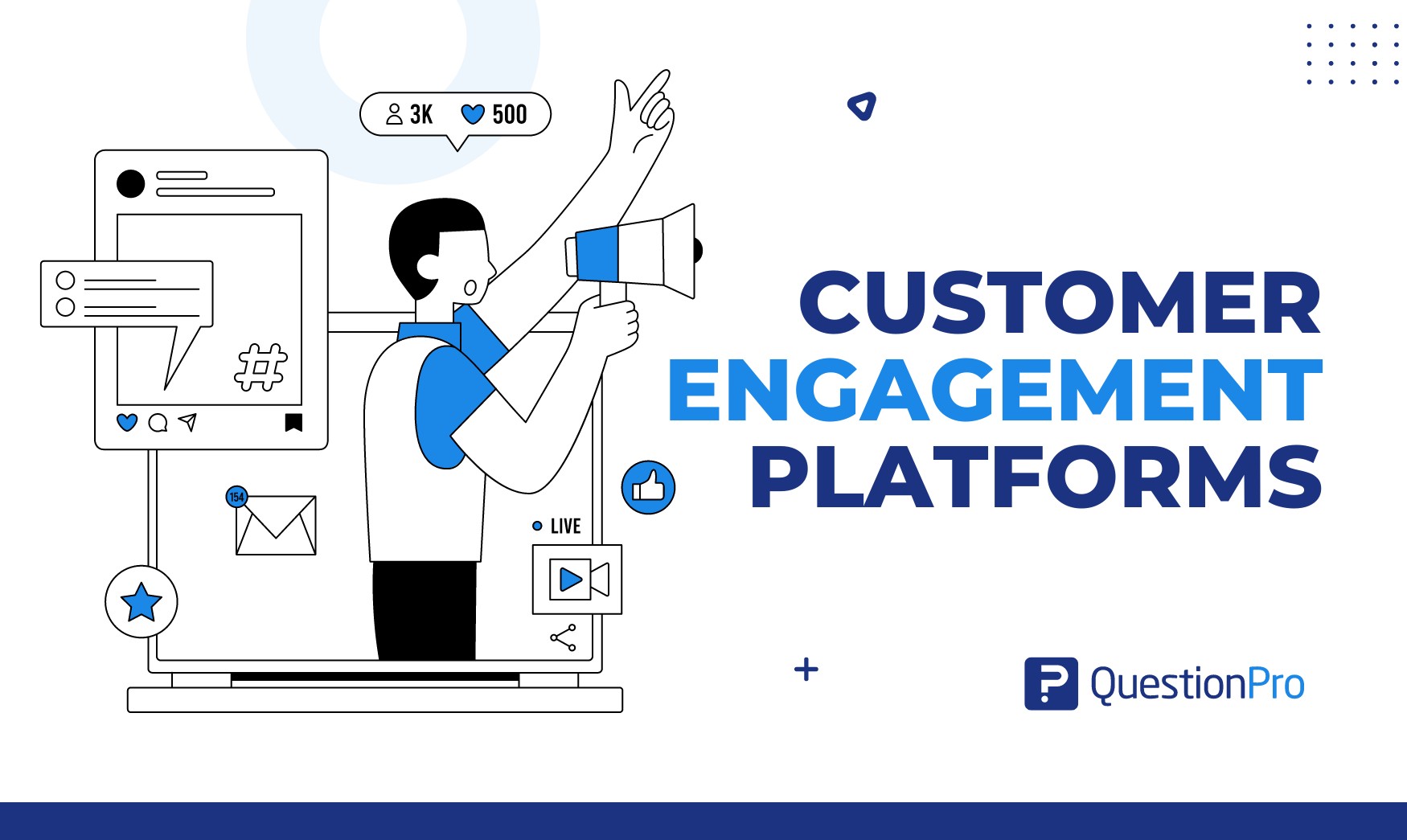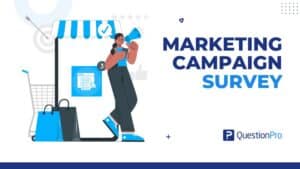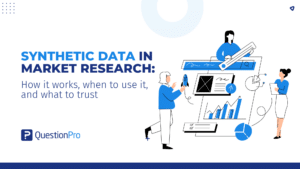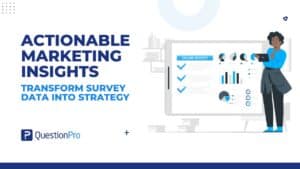
Businesses must actively engage with customers to build lasting relationships, improve satisfaction, and drive loyalty. Customer engagement platforms are designed to help businesses achieve these goals by offering tools and features that enhance interaction across various channels.
In this blog, we’ll explore the top 10 customer engagement platforms that can significantly boost your business’s interaction with its customers.
What Are Customer Engagement Platforms?
Customer engagement platforms are software solutions that facilitate and enhance interactions between a business and its customers. These platforms focus on improving customer engagement by integrating various communication channels and providing tools for managing, analyzing, and optimizing customer interactions.
Engagement platforms are integral for businesses seeking to build and maintain meaningful customer relationships. It ultimately drives better business outcomes through enhanced communication and engagement strategies.
Why Engagement Platforms Important for Your Business?
Engagement platforms have become crucial for modern businesses looking to build meaningful connections with their customers and enhance their overall brand experience. Here’s why they’re so important:
1. Enhanced Customer Relationships
Engagement platforms allow businesses to interact with their customers in real-time across various channels such as:
- Social media
- Email, chat
- And more
This facilitates personalized communication, which helps build stronger relationships. When customers feel heard and valued, they’re more likely to remain loyal and engaged.
2. Increased Customer Insights
These platforms provide valuable data on customer behavior, preferences, and feedback. By analyzing this information, businesses can better understand their audience, allowing for more targeted marketing strategies and product improvements. This data-driven approach can lead to more effective decision-making and better alignment with customer needs.
3. Improved Customer Retention
Engagement platforms help businesses maintain ongoing communication with their customers. Regular updates, personalized offers, and prompt responses to inquiries or issues contribute to a better overall customer experience. This continuous engagement creates loyalty and can significantly improve customer retention rates.
4. Efficient Issue Resolution
With tools like chatbots and automated responses, engagement platforms streamline the process of addressing customer queries and concerns. This speeds up issue resolution and frees up human resources to handle more complex tasks. Quick and efficient support can enhance customer satisfaction and trust in your brand.
5. Boosted Marketing Efforts
Engagement platforms offer a variety of tools for:
- Marketing automation
- Campaign management
- Performance tracking
Businesses can create and manage marketing campaigns across different channels from a single platform, track their effectiveness in real-time, and adjust strategies as needed. This centralized approach helps optimize marketing efforts and improve ROI.
6. Enhanced Brand Awareness
Active engagement across multiple channels helps increase brand visibility and awareness. Consistent and relevant interactions with customers can strengthen brand recognition and reputation. Additionally, positive experiences shared by customers on social media or review platforms can amplify your brand’s reach and influence.
7. Greater Efficiency and Productivity
Engagement platforms often integrate with other business systems and tools, streamlining workflows and improving efficiency. Businesses can allocate resources more effectively and focus on strategic initiatives that drive growth by automating routine tasks, such as follow-ups and data collection.
Stages of Customer Engagement
Understanding these stages is essential for businesses looking to enhance customer engagement strategies and build loyalty. In this blog, we’ll explore the key stages of customer engagement and offer insights into how businesses can effectively navigate each stage.
1. Awareness
The awareness stage is the first step in the customer engagement journey. At this point, potential customers become aware of your brand, products, or services. This stage is crucial as it sets the foundation for the customer’s perception of your brand.
2. Consideration
During the consideration stage, potential customers evaluate your products or services and compare them with alternatives. They seek more information to determine whether your offering meets their needs.
Key Actions:
- Educational Content: Provide detailed information about your products or services through case studies, whitepapers, webinars, and product demos.
- Customer Reviews: Highlight customer testimonials and reviews to build trust and credibility.
- Personalized Communication: Use personalized emails or messages to address specific customer queries and concerns.
3. Conversion
The conversion stage is where potential customers take action, such as making a purchase, signing up for a service, or subscribing to a newsletter. This is a pivotal moment in the customer engagement journey.
Goals:
- The goal of the conversion stage is to turn potential customers into paying customers by making it as easy and enticing as possible for them to complete the desired action.
4. Onboarding
In the onboarding stage, new customers are introduced to your product or service. A positive onboarding experience is essential for setting the tone for the rest of the customer relationship.
5. Engagement
In the engagement stage, customers are actively using your product or service. This stage is crucial for maintaining customer interest and encouraging ongoing interaction with your brand.
Key Actions:
- Regular Communication
- Loyalty Programs
- Community Building
Goals:
- The goal of the engagement stage is to keep customers actively involved with your brand, creating brand loyalty and long-term relationships.
6. Advocacy
The advocacy stage is where satisfied customers become brand advocates. They recommend your products or services to others, helping to drive word-of-mouth marketing.
7. Loyalty
The loyalty stage is characterized by customers who consistently choose your brand over competitors. These customers are highly engaged and are likely to make repeat purchases.
The goal of the loyalty stage is to maintain and strengthen the relationship with your most valuable customers, ensuring they continue to choose your brand.
Top 10 Customer Engagement Platforms to Try
Modern customer engagement platforms provide valuable insights, streamline communication, and build a deeper connection with the target audience. Below are ten customer engagement tools you should consider: their top features, drawbacks, and pricing information.
1. QuestionPro
QuestionPro is a robust survey and research platform designed to help organizations gather feedback and insights from their audience. It offers advanced tools for survey creation, distribution, and analysis, making it ideal for market research, employee engagement, and customer feedback.
Best Features:
- Wide range of survey templates.
- Advanced survey logic and branching.
- A/B testing.
- Mobile-friendly surveys.
- Offline survey capabilities.
- Customizable dashboards.
- AI-driven insights.
- User segmentation.
- Customer service ticketing.
Cons:
- Limited customization on lower plans.
Pricing:
- Starts at $99 per user per month.
2. Userpilot
Userpilot is a product and customer engagement tool that helps companies improve user onboarding, adoption, and retention. It allows you to create personalized in-app experiences without coding, making engaging users at the right time easier.
Best Features:
- Code-free in-app experiences.
- Behavior-triggered messages.
- In-depth analytics.
- A/B testing.
- Multi-language support.
- Product tours and walkthroughs.
- Feedback collection widgets.
- Customizable UI elements.
Cons:
- Limited integrations compared to competitors.
- Limited customer support outside of business hours.
Pricing:
- The Growth plan starts at $249 per month. Custom pricing is available for enterprise plans.
3. HubSpot
HubSpot is an all-in-one CRM platform that combines marketing, sales, customer service teams, and content management. It’s known for its robust features that help businesses attract, engage, and delight customers.
Best Features:
- Comprehensive CRM system.
- Marketing automation.
- Sales pipeline management.
- Content management system (CMS).
- Detailed analytics and reporting.
- Email marketing tools.
- Social media management.
- Integration with numerous third-party apps.
- HubSpot Academy for training.
Cons:
- Customer support can be slow during peak times.
Pricing:
- Free CRM available. Pricing details are available upon request.
4. Zendesk
Zendesk is a customer service and engagement platform that offers support, sales, and customer relationship management tools. It’s widely used by businesses of all sizes to streamline their customer support processes.
Best Features:
- Omnichannel support (email, chat, phone, social).
- Customizable ticketing system.
- Knowledge base creation.
- AI-powered automation.
- Customer feedback and satisfaction surveys.
- Robust analytics and reporting.
- Mobile app for agents.
- Community forums.
- Scalable as your business grows.
Cons:
- Expensive for small businesses.
- Complex setup for advanced features.
Pricing:
- The Suite Team plan starts at $55 per agent per month. Enterprise plans are also available.
5. Optimizely
Optimizely is a digital experience platform known for its powerful experimentation and personalization features. It helps businesses optimize their websites, apps, and overall customer experience through A/B testing and data-driven insights.
Best Features:
- Advanced A/B testing.
- Multivariate testing.
- Personalization engine.
- Content management system.
- Behavioral targeting.
- Integrations with marketing and analytics tools.
- User segmentation.
- Experimentation across multiple channels.
- Collaborative workflow management.
Cons:
- Limited support for small businesses.
- Some features are only available in higher plans.
Pricing:
- Pricing is available upon request.
6. Kangaroo
Kangaroo is a loyalty and customer engagement software that helps businesses retain customers through personalized rewards and engagement strategies. It’s particularly popular among retail and eCommerce businesses.
Best Features:
- Customizable loyalty programs.
- Points-based rewards.
- Mobile app for customers.
- Integration with POS systems.
- Multi-location management.
- Referral programs.
- SMS and email marketing.
- Gamification elements.
Cons:
- Basic analytics compared to competitors.
Pricing:
- Starts at $59 per month. Custom pricing is available for enterprise plans.
7. Typeform
Typeform is a popular platform for creating engaging, conversational forms and surveys. Its unique design approach makes collecting information from users an interactive experience.
Best Features:
- Conversational form and survey design.
- Extensive customization options.
- Logic jumps and branching.
- Mobile-responsive design.
- Custom themes and branding.
- Data export and analytics.
- Multi-language support.
- Collaboration tools.
Cons:
- Limited question types on the free plan.
- Data analysis tools are basic.
Pricing:
- Free plan available. Paid plans start at $25 per month for the Basic plan.
8. Sprinklr
Sprinklr is a customer experience management platform that helps businesses manage social media, customer care, and marketing across various channels. It’s designed for large enterprises looking to unify their customer engagement.
Best Features:
- Omnichannel customer experience management.
- Advanced social media listening tools.
- AI-powered insights and automation.
- Unified customer care dashboard.
- Global collaboration tools.
- Secure and compliant platform.
Cons:
- Complex setup process.
Pricing:
- Custom pricing is available.
9. Intercom
Intercom is a customer communication platform that combines messaging, automation, and self-service tools to help businesses connect with customers. It’s known for its user-friendly interface and wide range of communication options.
Best Features:
- Live chat and messaging.
- Automated workflows and bots.
- In-app messaging.
- Customizable chat widgets.
- Customer satisfaction surveys.
- Help center and knowledge base.
Cons:
- Occasional issues with message delivery.
Pricing:
- Enterprise pricing is available upon request.
10. Salesforce
Salesforce is a leading CRM platform that offers a comprehensive suite of tools for sales, service, marketing, and more. It’s known for its scalability and extensive customization options, making it a go-to for businesses of all sizes.
Best Features:
- Comprehensive CRM functionality.
- Marketing automation.
- AI-driven insights with Einstein.
- Customizable dashboards and reports.
- Mobile app for on-the-go access.
- Extensive training and support resources.
- Community-driven innovation.
Cons:
- Complex setup and onboarding.
Pricing:
- Pricing is available upon request.
How QuestionPro Helps as the Best Engagement Platform
QuestionPro is a powerful tool for customer engagement, offering features that help businesses build solid and lasting relationships with their customers. Here’s how QuestionPro excels as a customer engagement platform:
1. Real-Time Feedback Collection
QuestionPro allows businesses to collect real-time customer feedback through surveys, polls, and questionnaires. This instant feedback mechanism ensures companies can respond quickly to customer needs, concerns, and suggestions, improving satisfaction and loyalty.
2. Customer Experience (CX) Management
QuestionPro’s CX platform lets businesses track customer interactions across multiple touchpoints. This platform helps companies understand the overall customer experience and identify areas for improvement. The features are:
- Net Promoter Score (NPS) surveys
- Customer journey mapping and
- Sentiment analysis
3. Personalized Customer Interactions
QuestionPro enables businesses to segment their audience based on demographics, behavior, and feedback. This segmentation allows for personalized communication and tailored marketing campaigns, ensuring that customers receive relevant content and offers that resonate with their preferences.
4. Advanced Analytics and Insights
QuestionPro provides advanced analytics and reporting tools that help businesses gain deep insights into customer behavior and sentiment. The platform’s AI-driven analytics can identify trends, patterns, and areas of concern, enabling businesses to make informed decisions that enhance customer engagement.
5. Omnichannel Engagement
QuestionPro supports omnichannel engagement, allowing businesses to reach customers through various channels such as
- SMS
- Social media and more
This ensures businesses can engage with customers wherever they are, providing a seamless and consistent experience across all touchpoints.
6. Customer Satisfaction and Loyalty Programs
The platform offers tools to measure customer satisfaction through various metrics, including NPS, CSAT (Customer Satisfaction Score), and CES (Customer Effort Score). These metrics help businesses gauge customer loyalty and implement strategies to improve it. QuestionPro also supports creating loyalty programs that reward repeat customers, further enhancing engagement.
7. Integration with CRM and Marketing Tools
QuestionPro integrates seamlessly with popular CRM and marketing automation tools like Salesforce, HubSpot, and Marketo. This integration ensures that customer data is synchronized across platforms, enabling businesses to create a unified view of each customer and deliver more personalized engagement.
8. Mobile Engagement
With QuestionPro’s mobile-friendly surveys and feedback tools, businesses can engage customers on their smartphones and tablets. This mobile capability is crucial in today’s digital age, where many customer interactions occur on mobile devices.
9. Customizable Dashboards
QuestionPro offers customizable dashboards that allow businesses to track key customer engagement metrics in real-time. These dashboards provide a visual representation of:
- Customer feedback
- Satisfaction scores
- Engagement levels
It makes it easier for businesses to monitor and improve customer engagement strategies.
Conclusion
Choosing the right customer engagement platform can have a significant impact on your business’s ability to connect with and retain customers. These top 10 platforms offer a variety of features and pricing options to suit your needs. By exploring the tools and capabilities of these platforms, you can enhance your customer interactions, and improve customer satisfaction.
QuestionPro stands out as a leading customer engagement platform because of its excellent features that enable businesses to collect, analyze, and act on customer feedback in real-time. QuestionPro helps businesses create stronger customer relationships, driving satisfaction, loyalty, and long-term success. Contact QuestionPro for more information!







